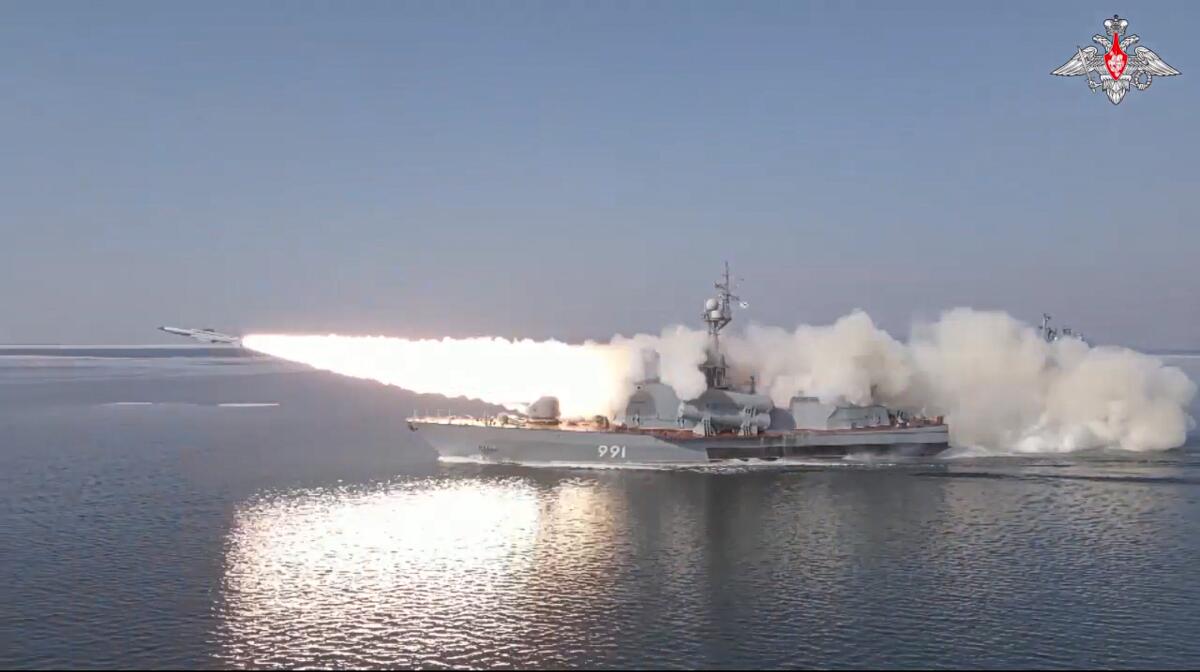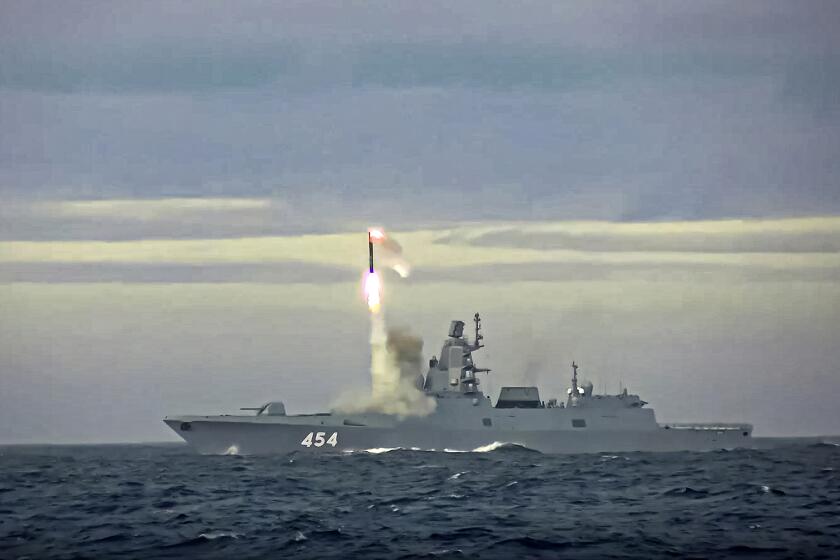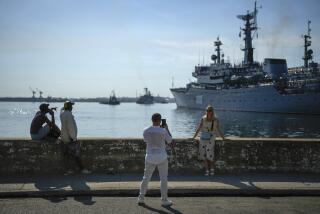Russia test-fires anti-ship missiles in the Sea of Japan, hitting mock target

MOSCOW — Russia test-fired anti-ship missiles in the Sea of Japan, the Russian Defense Ministry said Tuesday, with two boats launching a simulated missile attack on a mock enemy warship about 60 miles away.
The ministry said the target was successfully hit by two Moskit cruise missiles.
The Moskit, whose NATO reporting name is the SS-N-22 Sunburn, is a supersonic anti-ship cruise missile that has conventional and nuclear warhead capacity. The Soviet-built cruise missile is capable of flying at a speed three times the speed of sound and has a range of up to 155 miles.
The ministry said the exercise, which included other warships and naval aircraft, took place in the Peter the Great Gulf in the Sea of Japan, but officials did not give more precise coordinates. The gulf borders the Russian Pacific Fleet headquarters at Fokino and is about 430 miles from Japan’s northern Hokkaido island.
The Russian military has conducted regular drills across the country, and Russian warships have continued maneuvers as the fighting in Ukraine has entered a second year — exercises that were intended to train the troops and showcase the country’s military capability.
The U.S. Navy’s 7th Fleet did not immediately respond to requests for comment.
Russia has sent a frigate armed with the country’s latest hypersonic weapons on a transoceanic cruise in a show of force amid tensions with the West.
Japan reacted calmly to the missile exercise, which was conducted near Vladivostok, rather than directly in the waters between the two countries.
Japanese Deputy Chief Cabinet Secretary Yoshihiko Isozaki told a news conference later Tuesday that Tokyo would continue to monitor Russia’s military operations, as Moscow has been stepping up activity in the region.
Tokyo does not plan to lodge a protest with Russia over the missile exercise, said Tasuku Matsuki, the Japanese Foreign Ministry official in charge of Russia, noting that its location — Peter the Great Bay — is considered Russian coast, though it is facing the water between the two countries.
“On the whole, Japan is concerned about Russia’s increasing military activities around the Japanese coasts and watching them with great interest,” Matsuki said.
A new drive is underway across Russia this spring seeking volunteers to join the military and replenish Moscow’s troops for the war in Ukraine.
He added that Russia has conducted missile drills in that area in the past and issued maritime advisories ahead of time.
Russian nuclear-capable Tu-95 bombers flew over the Sea of Japan for several hours last week.
In September, Japan protested multinational military exercises on the Russian-held Kuril Islands — some of which are claimed by Japan — and expressed concern about Russian and Chinese warships conducting shooting drills in the Sea of Japan.
Russia also tested submarine-launched missiles in the Sea of Japan last year.
More to Read
Sign up for Essential California
The most important California stories and recommendations in your inbox every morning.
You may occasionally receive promotional content from the Los Angeles Times.












